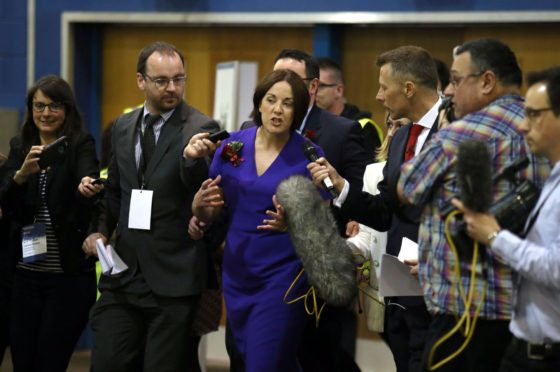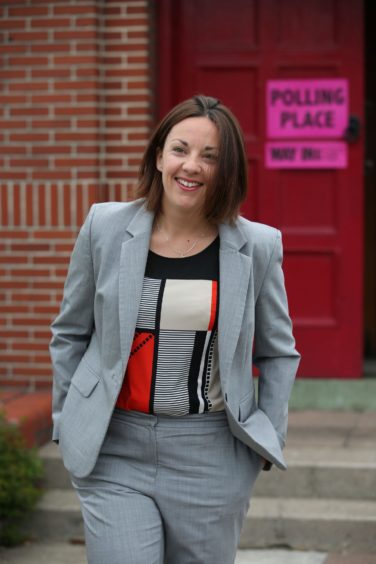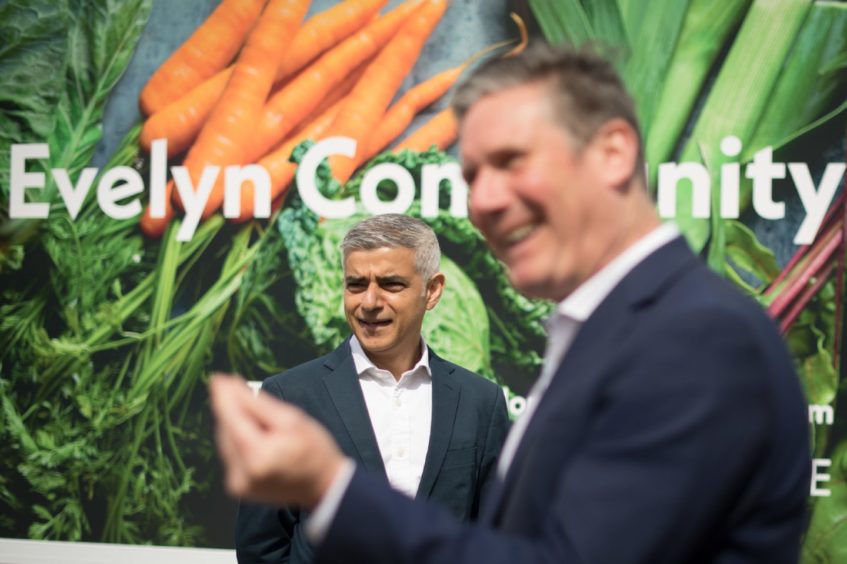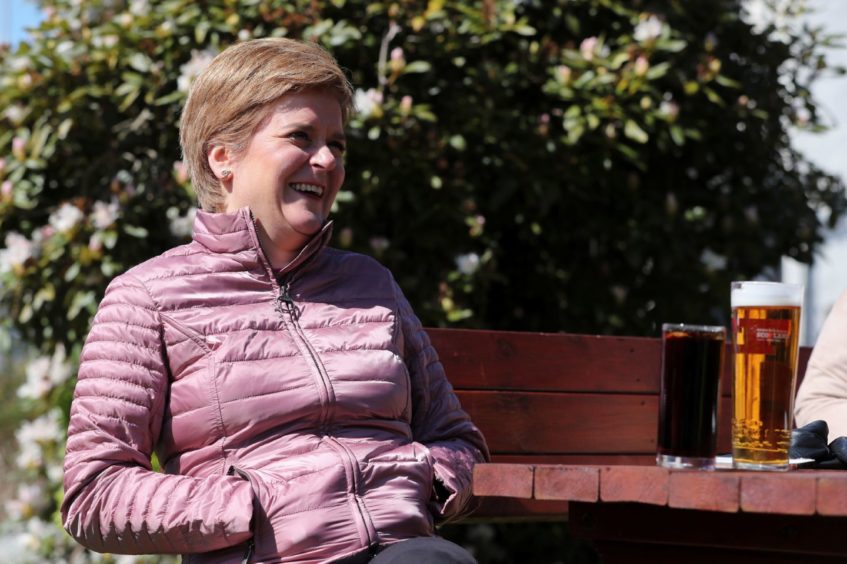Election night is political theatre. As the clock strikes 10pm and the polling stations close their doors, all eyes turn to the television.
Big Ben chimes and then results of an exit poll appear. This massive poll of voters as they leave the polling station is designed to predict the result accurately.
In truth its most useful role is giving the political pundits something to talk about for the next three hours before the first result comes through.
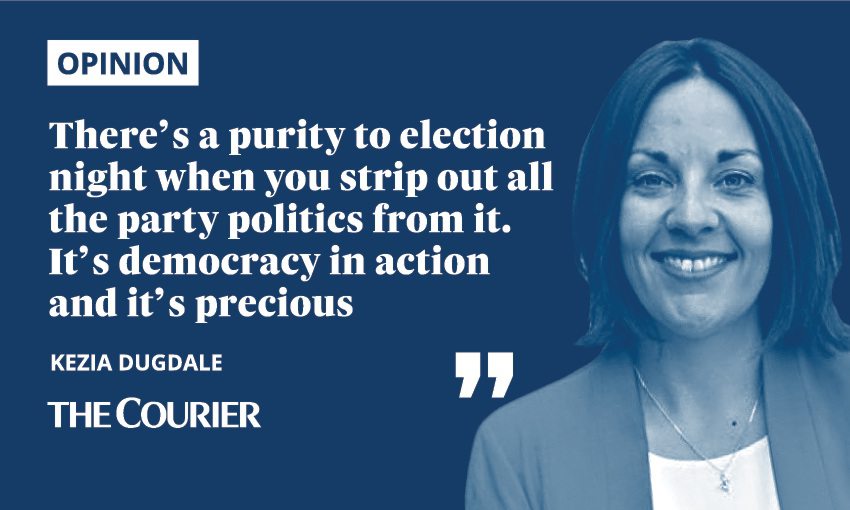
I’ve tuned in all through the night since that bell tolled in 1992, aged 10. It was a sign really, wasn’t it?
I’ve watched it as an election agent from a dirty campaign room strewn with last minute leaflets; As deputy leader of a party on a night that Labour would lose all but one of its Scottish seats.
I’ve perched on the edge of my couch as Leader, surrounded by advisers in 2017, as the results defied the polls in a good way.
Two years on, I’d watch it from behind a desk at the BBC as a political pundit. It has been some journey.
There’s a purity to election night when you strip out all the party politics from it. It’s democracy in action and it’s precious.
We forget sometimes, for all the faults and gripes we might have with our political system, that it is fundamentally free and fair. We have choices and all adults can freely exercise them.
The results give our leaders mandates to lead, to govern with our consent. If they fall short of achieving a majority, they must work with others. Bargain, persuade and compromise on our behalf.
Red wall to rubble
Today voters across the United Kingdom will be going to the polls.
In England, just over a third of local councils will be having elections. There are no less than 5,000 council seats up for grabs, most of them seats the Conservatives are defending.
Beyond the metropolitan areas of Liverpool and Manchester, many of the councils are in areas which were traditionally Labour but broke for the Tories at the last general election in 2019, the so-called Red Wall seats.
These two factors together suggest the Conservatives are going to have a good night in England, with the exception of London.
There you’ll find the Mayor Sadiq Khan set to win a second term, with the polls consistently showing him country leagues ahead of his Conservative opponent Shaun Bailey.
Wales will vote too, electing 60 members to the Senedd. The polls show the current Welsh First Minister on track to win another yet Labour term, with a 10% lead over the Conservatives in the last three polls.
Yet something else is happening in Wales which could yet throw up a few surprise results on the night. Support for Welsh independence is rising rapidly.
A Labour First Minister performing well, with high personal approval ratings, seems to be enhancing the case for the independence he’s against
When Scotland had its independence referendum in 2014, support for Welsh independence was as low as 3%, but polls today have it is as high as a third of Welsh voters.
In Scotland support for the SNP and for independence run broadly in tandem, so why doesn’t a rise in support for welsh independence not lead to vast swathes of support for Plaid Cymru, the SNP’s sister party in Wales?
Analysts argue it’s Covid. For the first time, people in Wales really see the Welsh Parliament at work in their interests. They like it and want more of it.
It’s a real head scratcher that a Labour First Minister considered to be performing well, with high personal approval ratings of his own, seems to be enhancing the case for the independence he’s against.
Nod to the number crunchers
And so to Scotland. There will be no exit poll at 10pm tonight and no opening of ballot boxes until Friday morning.
The count will take place over two days, with councils working through their constituencies over Friday and Saturday.
Covid means fewer counting agents and fewer observers. That means party activists won’t be able to do a sample.
That’s the exercise you see where they stand with clipboards beside tables of people counting, taking bar tallies of every ballot paper they can see.
That gets handed to some number cruncher huddled in a corner near a plug socket. From that sampling exercise, a result can be predicted within 5% of the final numbers, but well ahead of time.
Signs good for SNP
It’s that intelligence which is fed back to party HQ’s and TV pundits. It’s what fills the hours of chatter before results are formerly declared.
So what’s going to happen? Well there’s been four polls in Scotland in the last 48 hours.
The worst one for the SNP has them dropping to 59 seats, but still higher than any other party has achieved in the history of devolution.
The best poll for the SNP sees them win 68 seats. That would be their highest ever tally, achieving a majority and a mandate for a second independence referendum without the help of the Greens.
So they’ll either win or lose seats, the final polls are all over the place, there’s no exit poll and there will be no sample on the night.
The brutal truth is no one has the first clue what’s going to happen and you’ll have to wait until Saturday teatime for the result.
How’s that for a bit of straight-talking honest politics?
